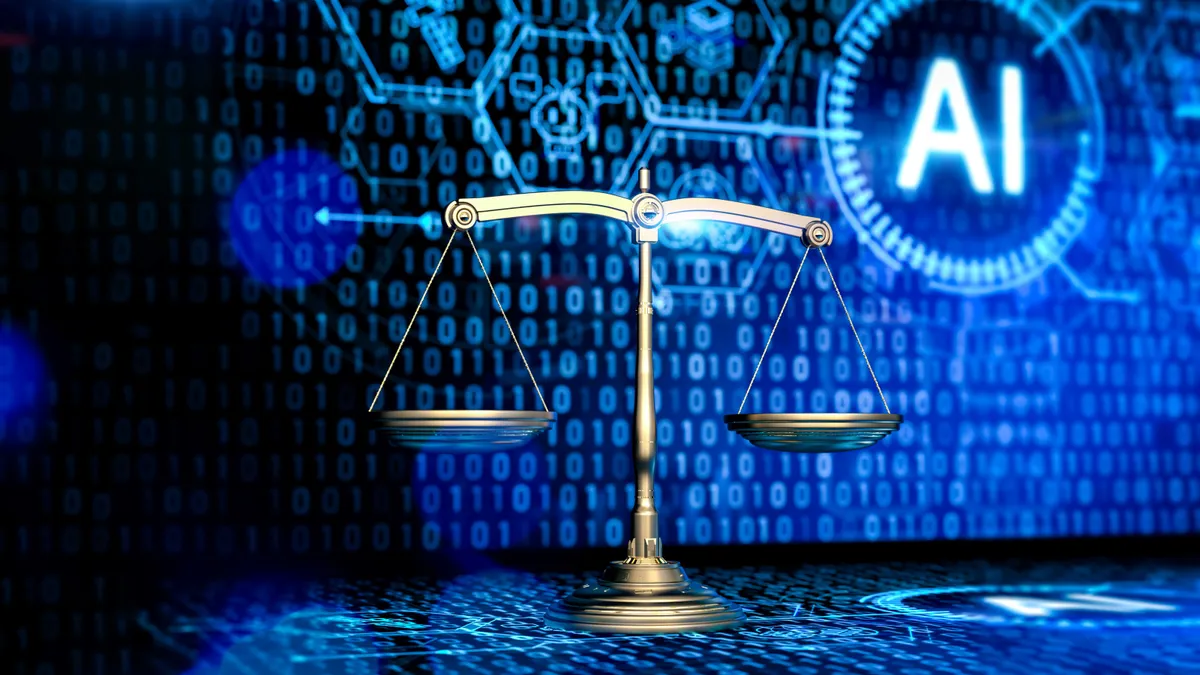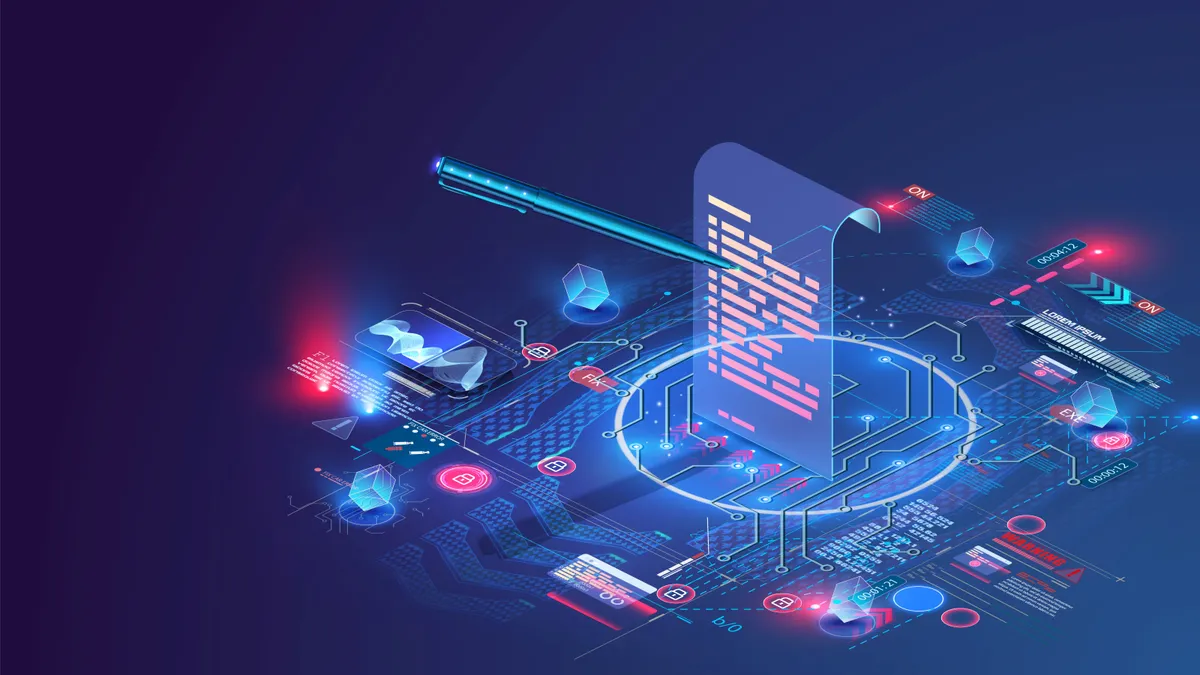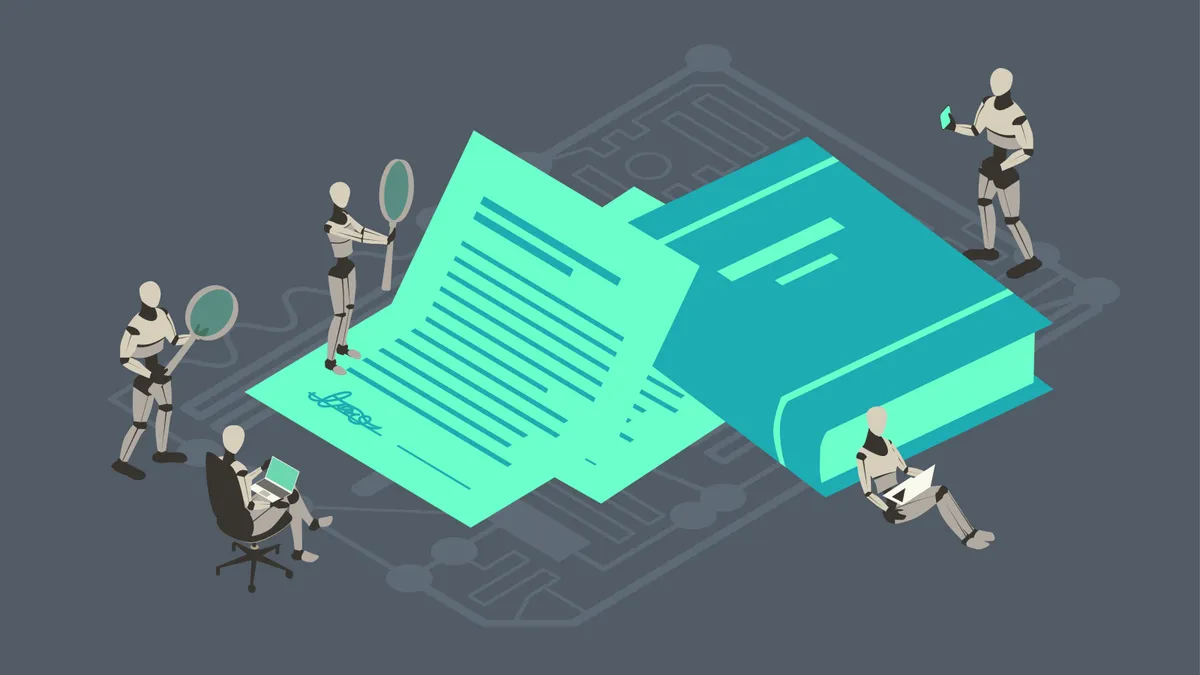Olga Mack is a digital transformation executive at LexisNexis. She is also an experienced general counsel, operations specialist and tech startup advisor. Views are the author’s own.
Lawyers stand at the center of a seismic shift. Their crucial duty to supervise AI is pivotal to the legal profession’s future.
In navigating the complex interplay between AI and law, lawyers must harness the unprecedented opportunities that AI offers and vigilantly uphold the ethical, professional and legal standards of legal practice.
By fulfilling their duty to supervise AI, lawyers will help organizations benefit from AI while continuing to meet professional responsibilities, maintaining ethical standards and ensuring the public’s best interests.
An ever-evolving duty
Lawyers are obligated to oversee the work of fellow lawyers, paralegals, vendors and other support staff.

This duty stems from their commitment to providing competent and diligent representation while maintaining the highest ethical standards.
In the United States, the American Bar Association (ABA) Model Rules of Professional Conduct codifies the duty to supervise in Rule 5.1. The rule addresses the responsibilities of partners and supervisory lawyers, as well as emphasizes the need to adequately supervise subordinate lawyers to ensure competent and ethical representation.
Additionally, Rule 5.3 covers the duties of lawyers concerning assistants and other professionals. Similar provisions and guidelines exist in other countries.
As the legal landscape evolves, so does the duty to supervise. With the advent of AI across the corporate landscape, the responsibility expands to the oversight of AI technologies.
Embracing the duty of supervision
Ultimately, the duty of supervision allows lawyers to strengthen organizations, promote excellence and safeguard company interests.
Lawyers train, guide and mentor colleagues and executives, ensuring they have the necessary skills and understand their legal and ethical obligations.
Quality control is a supervisory cornerstone, with legal teams establishing systems to maintain the highest ethical and professional standards as they foster compliance, address conflicts of interest and cultivate a culture of integrity across the organization.
Transparent communication, effective delegation and conflict resolution are essential for fostering a harmonious work environment where workloads are fulfilled and deadlines are met.
Lawyers enhance their skills and knowledge through ongoing professional development to inform their guidance and improve outcomes.
Supervising AI with care
In-house counsel play a pivotal role in shaping the responsible and ethical use of AI in business.
Their duty to supervise AI includes understanding AI tools, managing data and algorithms, considering ethical implications, maintaining accountability and prioritizing ongoing education and training.
As AI becomes more prevalent, legal teams also can incorporate AI in their supervisory efforts.
Lawyers must sufficiently understand the AI tools they and others use, including AI’s limitations, biases and ethical implications.
They must:
- Ensure the accuracy and integrity of data and algorithms
- Address biases in data and algorithms
- Uphold client confidentiality
- Avoid conflicts of interest
To meet these duties, in-house lawyers should develop organizational guidelines, procedures and standards for AI implementation, data management and compliance efforts.
Accountability and quality control are crucial in monitoring AI performance and validation processes.
In-house lawyers must conduct due diligence as they and business leaders select AI vendors, negotiate contracts and monitor compliance with legal and ethical requirements.
They should collaborate with multiple executives, managers and AI experts to embed legal and ethical considerations into AI initiatives.
Engaging in discussions about ethics helps lawyers stay informed about AI advancements and adapt their advice to technological developments.
Finding balance
Supervising AI is a balancing act that requires mitigating risks, collaborating with AI specialists and addressing ethical considerations, including fairness, transparency and accountability in developing and deploying AI systems.
Lawyers must also evaluate the accuracy and reliability of AI-generated work and take responsibility for the quality of their legal advice.
Close collaboration with AI specialists helps in navigating the technical aspects of AI, ensuring compliance with data privacy laws and maintaining client confidentiality.
Lawyers who continually adapt, stay informed about AI advancements and invest in ongoing education and professional development will be prepared to strike the right balance between AI and their expertise.
Then, they can harness the power of AI to deliver exceptional legal services while upholding the highest standards of the legal profession.
Accepting this challenge signifies a profound moment in the legal profession’s history that will shape the future of legal practice in the digital age.

















